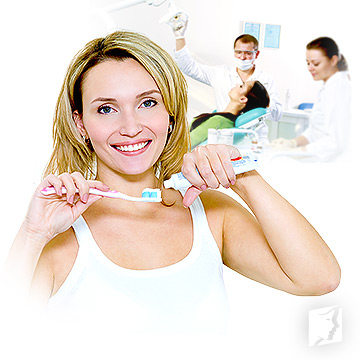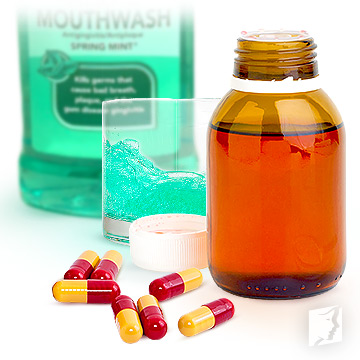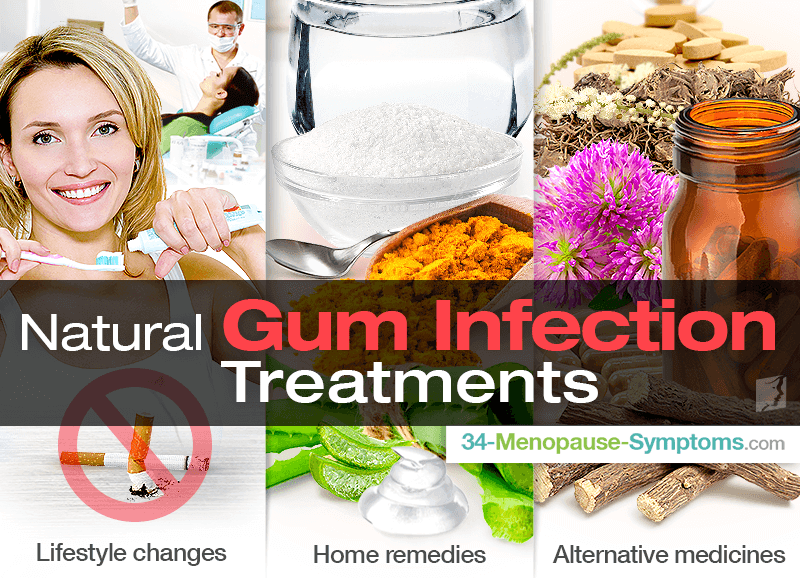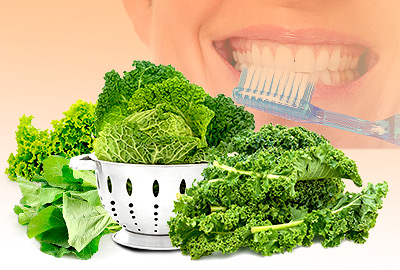Because gum infections cause excruciating pain, women's efforts should focus on preventing them in the first place. In case a gum infection does occur, the main goal of treatment is to control the infection, which can be achieved with proper home care alongside pharmaceutical options.
Read more about gum infection treatments, including natural and medical options to try, before it advances any further to cause tooth loss.
Natural Gum Infection Treatments
Lifestyle Changes

Although extra dental and medical treatments are often necessary, the best way for naturally treating gum infection is making simple lifestyle changes, including:
Practicing good oral hygiene. Infected gum treatment starts with proper oral hygiene. This includes brushing your teeth at least two times a day with toothpaste containing fluoride, a mineral that helps protect against tooth decay, as well as flossing at least once a day.
Visiting the dentist. Regular dentist appointments for professional cleanings and polishing are recommended once every six months to remove plaque and tartar buildup. If suffering from infected gums, more frequent check-ups will be necessary.
Quitting smoking. Smoking is one of the highest risk factors for gum disease. As such, giving up the unhealthy habit can prevent your gum infection from worsening.
Home Remedies

Women looking for gum infection remedies can pick from a variety of options, including:
Saltwater rinses. These are one of the most popular ways to reduce swelling of infected gums. Mix two teaspoons of salt into a cup of warm water, and rinse your mouth as you would with normal mouthwash. Use as many times throughout the day as you'd like.
Antibacterial pastes. Turmeric is an anti-inflammatory, antibacterial herb that helps reduce pain and swelling from gum infections. Make a paste by mixing a teaspoon of the herb's powder with a safe carrier oil or vitamin E. Rub it on your teeth and gums up to two times per day. The same can be done for baking soda and water.
Aloe Vera mouthwash. Research has shown that this plant is just as effective in treating gum infections like gingivitis as antiseptic chlorhexidine found in store-bought mouthwashes. Use 100 percent pure gel two to three times a day as a rinse by swishing it around your mouth for 30 seconds each time.
Coconut oil pulling. Coconut oil contains anti-inflammatory, antimicrobial lauric acid, scientifically proven to decrease plaque formation and plaque-induced gingivitis. To do an oil pull, rinse your mouth with one to two teaspoons of fractioned coconut oil (liquid at room temperature) for 30 seconds. Spit the oil out. Rinse your mouth with water. Spit the water out. Drink a full glass of water. Then, finally, brush your teeth. Be careful not to swallow the oil pulling liquid as it has toxins and bacteria washed away from your gums.
Alternative Medicines

Women who are passing through the menopausal transition with gum problems may have compromised oral health due to drastic fluctuations of key reproductive hormones, such as estrogen.
As such, these alternative medicines could be implemented as treatment for gum infections by targeting the underlying cause of hormonal imbalance. They include:
Phytoestrogenic herbal supplements. These supplements include black cohosh, red clover, licorice root, and more. They contain plant estrogens that help fill the hormonal gap created when ovarian hormone production comes to an end.
Hormone-regulating supplements. These supplements, like Macafem, nourish the endocrine and pituitary glands, thus encouraging endogenous hormone production. They are considered one of the safest ways to balance hormones as they don't introduce exogenous hormones into the body.
Medical Gum Infection Treatments
Dental Medications

If the gum infection is less advanced, treatment may include:
Pharmaceutical grade mouthwashes. These antiseptic mouthwashes contain chlorhexidine or hexetidine and can sometimes be found available over the counter. Follow mouthwash instructions to control further plaque buildup.
Antibiotics. In order to control the bacterial infection, topical or oral antibiotics may be prescribed. Topical options include mouth rinses and gels inserted into pockets after deep cleaning; whereas, oral options completely eliminate any infection-promoting bacteria.
Procedures
For women suffering from extensive gum infection, it may be time to pursue surgical options:
Root planing. This is a deep cleaning process that reaches under the gums to extract bacteria from the roots of the teeth. Local anesthesia will be applied to numb the area before the treatment.
Periodontal surgery. A dentist may need to remove and replace the affected bones and gums. Speak with your dentist about the details of surgeries such as soft tissue or bone grafting.
Guided tissue regeneration. Biocompatible fabric will be placed between the existing bone and tooth to allow regrowth of the bone that was destroyed by bacteria.
Hormone Medications
Then, just as alternative medicines are enacted to treat underlying hormonal imbalances, so are hormone medications. They involve:
Hormone replacement therapy (HRT). This hormone regimen introduces exogenous reproductive hormones into a woman's body, thus relieving symptoms of their imbalance, including dental problems. Beware as it may increase the risk of serious side effects of breast cancer, ovarian cancer, and more.
Oral contraceptives. Women looking to regulate hormone levels while reaping the benefits of birth control pills may look into this as an option to relieve dental problems aggravated by constantly fluctuating hormones. Though less invasive than HRT, this option also carries side effects associated with exogenous hormone use.
Key Takeaways
All in all, gum infection treatments include a variety of natural and medical options. Less risky options include lifestyle changes, home remedies, and the use of alternative medicines for those suffering from compromised gum health due to menopause. Then, if the infection has progressed sufficiently, dental medications and procedures can be enacted along with hormone medications as an option for menopausal women, for whom further treatments for gum problems can also be of use. Take oral health into your hands today to prevent further damage tomorrow.
Sources
- Mayo Clinic. (2018). Periodontitis: Diagnosis & treatment. Retrieved November 20, 2018, from https://www.mayoclinic.org/diseases-conditions/periodontitis/diagnosis-treatment/drc-20354479
- National Institute of Dental and Craniofacial Research. (2018). Gum Disease. Retrieved November 20, 2018, from https://www.nidcr.nih.gov/health-info/gum-disease/more-info#treatment
- NHS. (2016). Treatment: Gum disease. Retrieved November 20, 2018, from https://www.nhs.uk/conditions/gum-disease/treatment/
- Peedikayil, F.C. et al. (2015). Effect of coconut oil in plaque related gingivitis - A preliminary report. Nigerian Medical Journal, 56(2), 143-147. doi: 10.4103/0300-1652.153406
- Vangipuram, S. et al. (2016). Comparative efficacy of aloe vera mouthwash and chlorhexidine on periodontal health: A randomized controlled trial. Journal of Clinical and Experimental Dentistry, 8(4), e442-e447. doi: 10.4317/jced.53033


